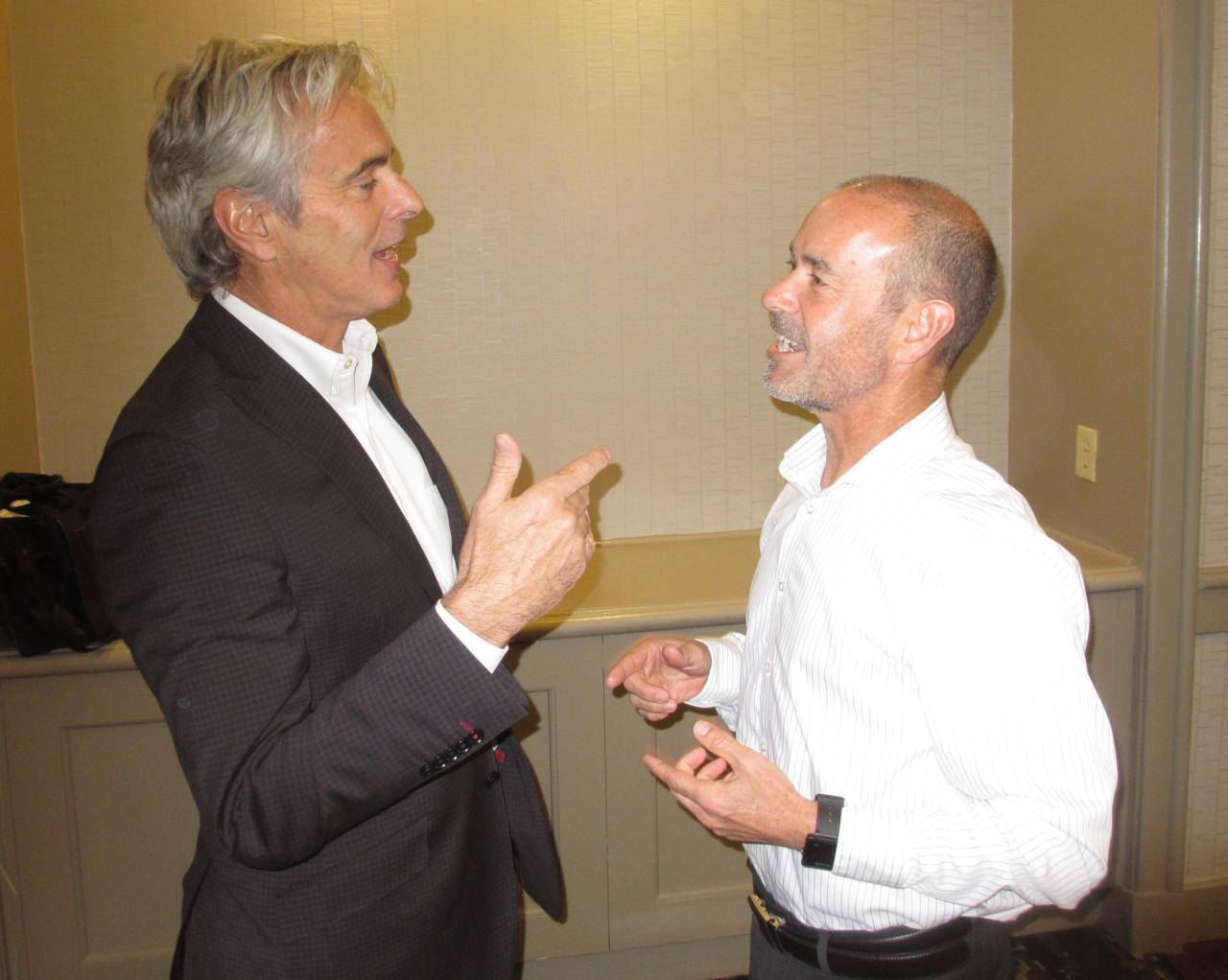November 11, 2015 Updated 11/11/2015
Email Print

Roger Renstrom WPA President John Picciuto, left, and Bruce Magnani connect before Western Plastics Association’s Nov. 10 meeting.
Norwalk, Calif. — A California agency’s effort to reduce reliance on landfills includes a strategy promoting extended producer responsibility.
That provision makes Sacramento lobbyist Bruce Magnani “nervous,” he said in remarks at the Western Plastics Association’s Nov. 10 dinner meeting in Norwalk.
The state’s Department of Resources Recycling and Recovery — operating as CalRecycle — aims by 2020 to reach a goal of 75 percent recycling, composting or source reduction of solid waste.
Magnani envisions CalRecycle mandating recycled content rules, the California Air Resources Board banning organics from landfills and the state creating regulations for recovering food-service waste.
Among its efforts, CalRecycle will hold a packaging workshop, dubbed the Manufacturers’ Challenge, on Jan. 5 in Sacramento. Up to seven hours are allocated for product manufacturers and brand owners to explain what they are “willing to do, on an industry-wide level, to recover their product packaging to help California” reach the 75-percent goal by 2020, Magnani said.
CalRecycle “wants companies to be smarter about how they package goods” and seeks to draw inputs from major players such as Coca-Cola, Magnani said.
Magnani is a principal with the Sacramento firm Houston Magnani & Associates, whose clients include WPA.
Other issues
Magnani also gave a portion of the back story about the fate of SB-350, the pending Clean Energy and Pollution Reduction Act of 2015.
He quoted Democratic Gov. Jerry Brown: “Oil has won the skirmish, but they’ve lost the bigger battle,” referring to public opinion.
The bill proposes to increase the state’s renewable portfolio standard to 50 percent by 2030. Brown signed legislation in 2011 to increase the standard to 33 percent by 2020.
In early September, moderate Democrats in the Assembly stood firm in opposition to certain SB-350 provisions, in part reflecting views of their backers in the petroleum and trucking industries.
“The battle is not over,” Magnani noted.
Magnani did not discuss California’s 2016 referendum on a proposed statewide ban on single-use plastic bags.
Magnani has 22 years of government affairs counseling experience in the state capital and says that Sacramento has “a culture onto itself.”
Under revised legislative term limits, “90 percent of the members are capable to staying [in office] until 2024,” he said.
The advent of citizen-led legislative redistricting rules and open primaries are “all leading to more moderate members” and fewer of those with extreme conservative or liberal orientations, he noted.


























